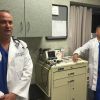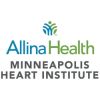Understanding Heart Disease in Children: An Overview
Heart disease in children, though less common than in adults, is still a significant health concern that can affect their overall quality of life. Unlike adults, heart disease in children is often congenital, though acquired heart conditions also exist. Early detection and proper treatment are critical to ensuring that affected children can lead healthy, active lives. In this article, we will explore the causes, symptoms, and treatments for heart disease in children, as well as how families can support their young ones through this journey.

The Causes of Heart Disease in Children
Heart disease in children can be broadly categorized into two types: congenital and acquired. Congenital heart disease is present at birth and may involve structural problems with the heart such as holes in the heart, abnormal heart valves, or issues with blood flow. Acquired heart disease, on the other hand, develops after birth due to other conditions such as infections, autoimmune diseases, or lifestyle factors.
Congenital heart defects are the most common form of heart disease in children, affecting about 1 in 100 newborns. These defects can range from minor issues, like a small hole in the heart, to more severe conditions such as hypoplastic left heart syndrome or transposition of the great arteries. These conditions can severely impact the child's ability to thrive without medical intervention.
Acquired heart diseases, although less common in children, can occur as a result of conditions like Kawasaki disease, a rare but serious illness that can cause inflammation in the coronary arteries. Rheumatic heart disease, caused by an untreated streptococcal throat infection, can also damage the heart valves in children.
Atlanta Heart Specialists
atlanta heart specialists
4375 Johns Creek Pkwy #350, Suwanee, GA 30024, USA

Signs and Symptoms of Heart Disease in Children
Identifying heart disease in children can be challenging, especially since some symptoms may resemble those of other childhood illnesses. Common signs include:
- Unusual fatigue or weakness
- Shortness of breath, particularly during exercise
- Blue or purple tint to the skin, especially around the lips or fingers
- Swelling in the legs, abdomen, or eyes
- Frequent chest pain or discomfort
It is essential for parents to be vigilant and seek medical attention if any of these symptoms arise, as early detection and treatment can greatly improve the outcome for a child with heart disease.
Diagnosis of Heart Disease in Children
To diagnose heart disease, pediatric cardiologists use a variety of tools and tests. These may include:
- Echocardiogram: A non-invasive ultrasound of the heart that provides a clear image of the heart's structure and function.
- Electrocardiogram (ECG): A test that measures the electrical activity of the heart and can detect abnormal rhythms or heart disease.
- Chest X-ray: This can show the size and shape of the heart and detect any swelling or abnormalities.
- Blood tests: These can help detect inflammation or infections affecting the heart.
- Cardiac MRI: In some cases, this imaging technique may be used to get a more detailed view of the heart's structure.
Once a diagnosis is confirmed, the pediatric cardiologist will determine the severity of the condition and recommend the best course of action for treatment.
Treating Heart Disease in Children
The treatment for heart disease in children depends on the specific diagnosis and the severity of the condition. Treatment options can range from medications and lifestyle changes to surgeries and heart transplants. Some common treatments include:
- Medications: These may include drugs to control blood pressure, reduce swelling, or help the heart pump more efficiently.
- Heart surgery: In some cases, surgery is needed to repair congenital defects or to address damage caused by acquired heart disease.
- Heart catheterization: A minimally invasive procedure used to diagnose or treat certain heart defects, such as repairing holes in the heart or opening narrowed blood vessels.
- Heart transplant: In very severe cases of heart disease, when other treatments are ineffective, a heart transplant may be necessary.
The goal of treatment is to manage the symptoms, improve heart function, and ensure the child can live a full, active life. Many children with heart disease can lead normal lives with the right care and ongoing monitoring.
Lifestyle and Dietary Considerations for Children with Heart Disease
While medical treatments are essential for managing heart disease in children, lifestyle and dietary changes also play a crucial role in supporting heart health. Parents can work with healthcare providers to create a plan that includes:
- Balanced diet: Encouraging a heart-healthy diet that is low in saturated fats and sodium and rich in fruits, vegetables, and whole grains can help keep the heart healthy.
- Physical activity: Children with heart disease may need to modify their physical activity based on their specific condition, but staying active is important for overall health.
- Stress management: Learning how to manage stress and emotions can be beneficial for children with heart disease, especially as they grow older.
It's important for parents to work closely with their child's medical team to ensure that these changes are appropriate for their specific needs and condition.
Support for Families and Children with Heart Disease
Dealing with a child's heart disease can be overwhelming for families. Emotional support is essential, as is connecting with others going through similar experiences. Many hospitals and organizations offer support groups and resources for families, which can provide a sense of community and comfort. It's also essential for parents to advocate for their child's care and stay informed about their condition to make the best decisions for their health.
Conclusion: Early Diagnosis and Treatment are Key
Heart disease in children can be a challenging and emotional journey, but with early diagnosis and proper treatment, many children can lead healthy, fulfilling lives. If you notice any signs or symptoms of heart disease in your child, seek medical attention right away. With the right care, children with heart disease can thrive.





















Deborah Heart and Lung Center
deborah heart and lung center
200 Trenton Rd, Browns Mills, NJ 08015, USA